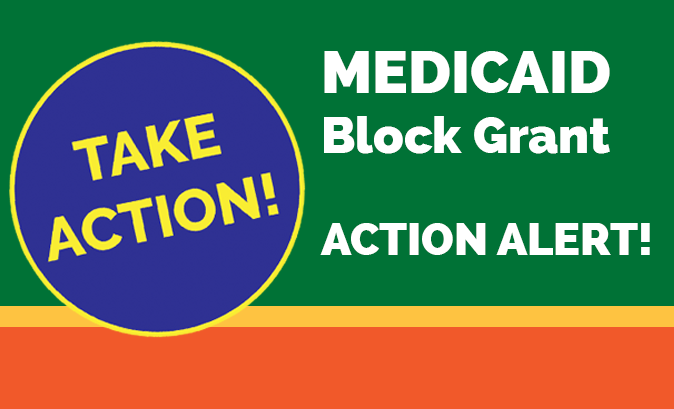MEDICAID (Medical Assistance or MA in Minnesota)
Oppose Drastic Cuts to Medicaid that will be devastating for Minnesotans.
Why is this so urgent now?
- Medicaid (Medical Assistance or MA in Minnesota) is a critical mechanism that ensures healthcare coverage and services for Minnesotans of all ages with disabilities, the elderly, children and low income adults.
- Under this plan, House Republicans are looking at transitioning Medicaid’s financing to a per capita allotment. States would also have the choice to receive federal Medicaid funding in the form of a block grant or global waiver.
- Currently, federal Medicaid funding provides an open-ended commitment to help states cover Medicaid costs for eligible populations. A move to per capita allotments or block grants would end this arrangement and shift the fiscal responsibility for Medicaid to the states. Either approach would result in a devastating cut in Medicaid spending at the federal level. This simply shifts costs to the states. Minnesota would be forced to absorb these cuts in our state budget. This could be done by eliminating eligibility, reducing benefits, limiting access to care, or reducing already below cost provider-payment rates. The alternative and more unlikely option would be reductions in another area or areas of the state budget to make up these lost funds or increased taxes. It is clear that this change to Medicaid financing will have a negative impact on Minnesota’s economy.
Talking Points about Medicaid and a move to Per Capita Allotments or Block Grants:
- Medicaid is a vital source of health care and related services for Minnesotans of all ages with disabilities, the elderly, children and low income adults.
- The proposal to turn Medicaid into per capita allotments or block grants would result in devastating cuts to Minnesota’s Health and Human Services budget and have ramifications for our overall state budget.
- A dramatic cut to our state budget will negatively impact Minnesota’s economy.
- It’s hard to imagine a scenario under this proposal where Minnesota wouldn’t be penalized for our past success in achieving nation-leading low-cost, high-quality, healthcare.
- Minnesota already has the opportunity for flexibility under the current Medicaid program. Innovative programs such as Minnesota’s Medicaid Accountable Care Organization (ACO) model, Integrated Health Partnerships (IHP)s which is currently serving over 342,000 Minnesotans enrolled in Medical Assistance – has already produced substantial savings for Minnesota. Innovation will be hampered if the state’s Medical Assistance budget is dramatically reduced. How can providers be expected to try innovative new programs when they are struggling to keep their doors open?
- This plan simply shifts costs from the federal government to states and working families.
- Costs will be shifted to counties and county budgets will be impacted.
- This proposal requires more state general fund dollars to be spent on healthcare and could pull funds from other areas of the state budget.
- Cuts to the state budget will have a dramatic negative impact on Minnesota’s healthcare workforce.
- Many areas of the state depend on jobs in healthcare and these jobs support the local economy.
- A dramatic cut to the state Health and Human Services budget could harm efforts to address the opioid epidemic.
Some Questions for Members of Congress:
- What are you going to do to preserve coverage for these populations?
- What are you going to do to prevent these drastic cuts to Medicaid?
- How do you propose we absorb this cut at the state level?
- How do you propose counties absorb these cuts?
- How can Minnesota continue to lead the nation with low-cost high-quality care with a dramatic cut to federal funding?
- How do you expect innovation to continue when providers will be struggling to keep their doors open?
Town Hall Meeting Tips
- Practice your question.
- A good question is short, to-the-point, and respectful.
- Use Medicaid and ACA data for your state to help bring the messages home.
- If Medicaid or the ACA helps you or your family directly, be sure to briefly mention that and how any cuts would be devastating.
- Be sure to bring a business card (if you have one) to share with your Member of Congress or their staff, if the opportunity presents itself. If the Member or their staff wants more information, you can also follow up afterward.


Recent Comments